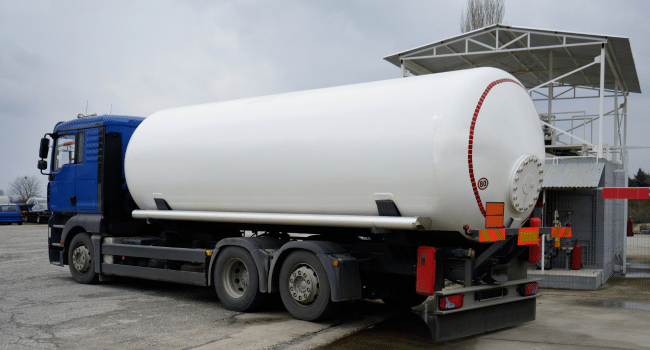Table of Contents
The functionality and longevity of hydraulic systems in trucks rely heavily on the hydraulic oil tank, the component responsible for holding and safeguarding the oil needed for hydraulic operations. Be it for commercial vehicles, heavy machinery, or specialised transportation, the durability and reliability of a hydraulic oil tank is of paramount importance, ensuring steady and uninterrupted performance during the demanding tasks these vehicles perform.
Understanding Hydraulic Oil Tanks
A truck’s hydraulic oil tank serves as a reservoir for hydraulic fluid, which is critical for powering various parts such as the braking systems, lifting mechanisms, and steering components. The tank not only stores the fluid but also helps in heat dissipation and keeping the fluid free from contaminants, which directly influences the efficiency of the hydraulic system.
Material Selection for Tanks
When selecting a hydraulic oil tank for a truck, one must consider the material construction. Common materials include aluminum, steel, and polyethylene, each with distinct advantages. Aluminum is lightweight and resistant to corrosion, making it a preferred choice for it enhances fuel efficiency and longevity. Steel tanks are known for their strength and durability, but without proper coatings, they can be prone to rust. Polyethylene tanks offer excellent resistance to both impact and corrosion, along with cost-effectiveness, although they may not have the structural strength of metal tanks.
Design Specifications
Another critical aspect of choosing a hydraulic oil tank is its design. The tank’s design should promote efficient oil cooling and help in the elimination of air and contaminants from the fluid. Features such as baffles, which prevent fluid sloshing, and filtration systems to keep the oil clean, are integral in maintaining the system’s performance and extending its lifespan.
Capacity and Size Considerations
Capacity is another factor to consider when selecting a hydraulic oil tank for a truck. A tank must be adequately sized in relation to the hydraulic system’s requirements. Too small of a tank can lead to insufficient fluid volume, causing overheating and potential system damage, while an excessively large tank can be unwieldy and unnecessarily add to the vehicle’s weight and costs.
Correct dimensioning not only optimises performance but also ensures that the tank fits appropriately within the space available on the truck, adhering to safety and regulatory standards, and maintaining room for other essential storage options such as ute boxes.
Durability Against Environmental Stress
Considering environmental factors is a pivotal step in ensuring the durability of a hydraulic oil tank. The tank must withstand a range of temperatures and harsh weather conditions, including exposure to chemicals and road salt. Tanks designed with robust coatings and sealing technology can greatly extend their durability and protect against such external stressors.
Understanding the routes and conditions a truck will be subjected to is therefore crucial when choosing a tank, as neglecting these factors can result in premature wear, leaks, and system failures.
Regulatory Compliance
When selecting a hydraulic oil tank, compliance with industry standards and regulations is a non-negotiable aspect. Respecting legal requirements not only ensures safety but also prevents legal complications that might arise from non-compliance. Manufacturers of hydraulic oil tanks should always provide documentation attesting to the conformity of their products with industry and safety standards.
Preventive Maintenance Accessibility
Accessibility for maintenance plays a vital role in the selection of a hydraulic oil tank. Regular maintenance is essential for prolonging the life of the hydraulic system, and therefore, the tank must be designed in a way that allows for easy inspection and cleaning. Features such as large filler caps, drain plugs, and level gauges contribute to a maintenance-friendly tank that can be efficiently serviced, reducing downtime.
Brand and Manufacturer Reputation
The reputation of the hydraulic oil tank’s manufacturer can speak volumes about the quality and reliability of the product. Renowned brands like Red Flag Industries roof trays have established themselves by consistently delivering high-grade automotive accessories, and similarly, a hydraulic oil tank from a reputable source is more likely to meet or exceed performance expectations.
Partnering with a trusted brand not only assures quality but also ensures that the support and warranty services will be reliable, should any issue arise.
Cost-Effectiveness and Value for Money
While price should not be the sole determining factor, the cost of a hydraulic oil tank is undeniably an important consideration. It is crucial to balance affordability with quality, opting for a tank that offers the best value for money by fulfilling the required specifications and performance standards without compromising on durability and effectiveness.
It is often found that investing in a higher quality tank from the outset can save money over time by minimising maintenance costs and reducing the likelihood of system failure.
Conclusion
In conclusion, choosing the right hydraulic oil tank for a truck involves a multifaceted decision-making process. Evaluating the construction material, design, capacity, durability, regulatory compliance, brand reputation, and overall cost-effectiveness are all essential factors that need to be carefully considered to ensure optimal performance and reliability of the hydraulic system.
With the vital role that these tanks play in the operation of trucks, ensuring that you select a premium and well-suited hydraulic oil tank is an investment in the vehicle’s operational efficiency and long-term success.
By prioritising quality and suitability in your selection process, you safeguard not only the hydraulic system but also the overall productivity of the truck, leading to sustained performance in even the most demanding of conditions.
